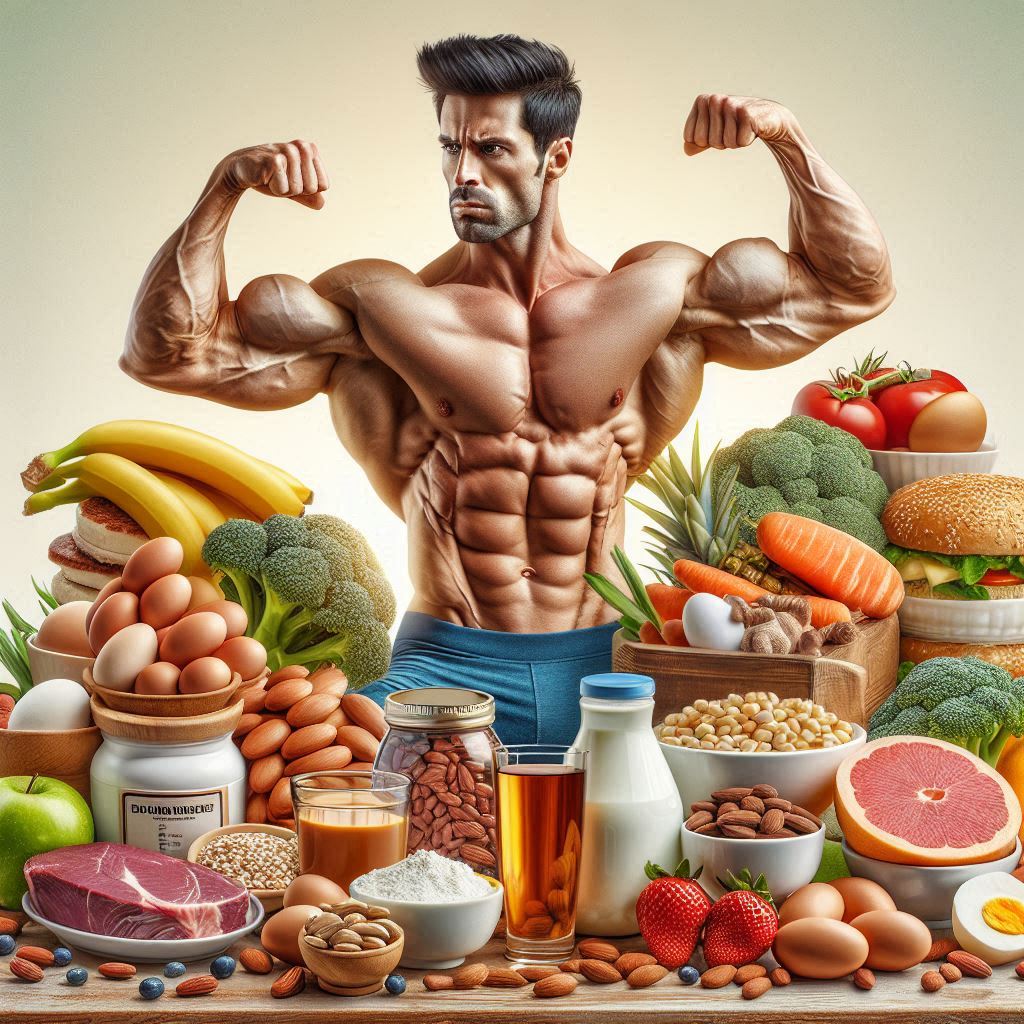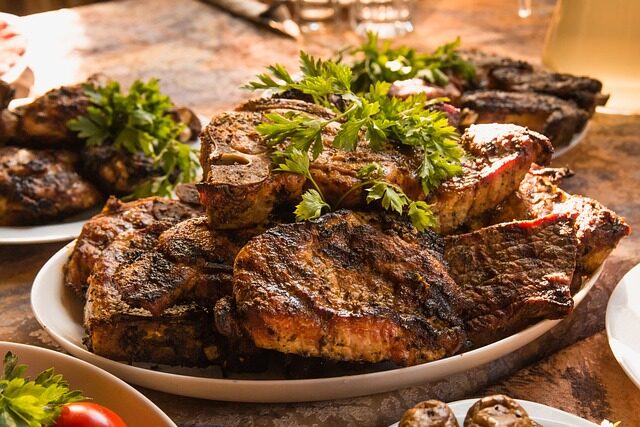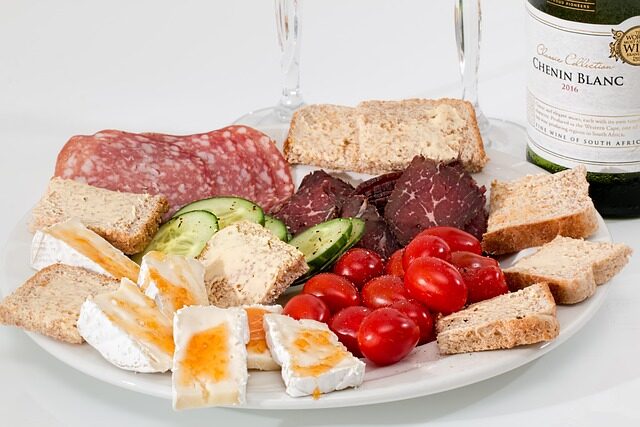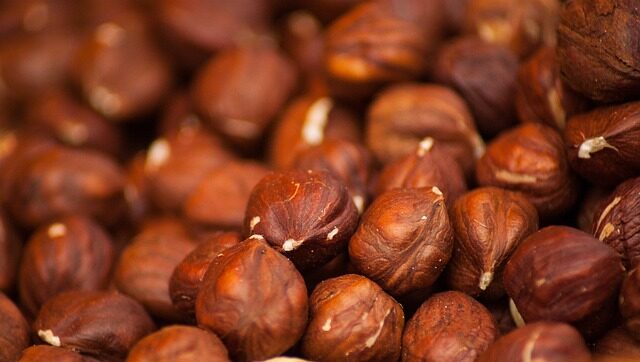39 high-protein foods for optimal nutrition and muscle building

Protein is an essential macronutrient that plays a crucial role in building and repairing tissues in your body. As such, including high-protein foods in your diet is important for muscle growth, hormone production, and overall health. While many associate protein-rich diets with bodybuilders or athletes, everyone needs protein to function properly.
- High-protein foods: What are the best options for weight loss?
- High-protein foods: Which foods are high in protein?
- High-protein foods: How much protein do you need daily?
- High-protein foods: What are the vegetarian options?
- High-protein foods: What are the top sources of protein?
- High-protein foods: How to incorporate more protein into your diet?
- High-protein foods: What foods should you avoid for weight loss?
- Related Questions on High-Protein Diets and Foods
High-protein foods: What are the best options for weight loss?
When it comes to weight loss, not all high-protein foods are created equal. For those looking to shed pounds, choosing lean proteins that provide ample nutrition without excess calories is key. Foods such as skinless chicken, turkey breast, and low-fat dairy products can be excellent choices. Additionally, plant-based sources like lentils, beans, and tofu not only offer protein but also fiber, which can enhance feelings of fullness.
Another important aspect to consider is cooking method. Grilling, baking, or steaming rather than frying can help reduce the overall calorie count, making these protein sources more conducive to weight loss. It's also beneficial to complement these foods with a variety of vegetables and whole grains for a well-rounded, nutrient-dense meal.
While high-protein diets can aid in weight loss, balance is key. It's important to avoid overly restrictive regimens that may lead to nutritional deficiencies or unsustainable eating habits. Instead, focus on incorporating a variety of healthy high-protein foods into your daily meals.
High-protein foods: Which foods are high in protein?
- Chicken breast
- Salmon
- Greek yogurt
- Almonds
- Eggs
These are just a few of the foods known for their high protein content. It's worth noting that each of these options brings additional nutritional benefits, such as omega-3 fatty acids in salmon, probiotics in Greek yogurt, and healthy fats in almonds.
High-protein foods: How much protein do you need daily?
The amount of protein you need each day can vary based on factors such as age, gender, and level of physical activity. The general guideline is to consume around 0.36 grams of protein per pound of body weight, but those who are more active may require more to support muscle recovery and growth.
For instance, if you weigh 150 pounds, your daily protein target would be around 54 grams. However, an athlete or someone with a highly active lifestyle may aim for nearly double that amount. It's also important for elderly individuals to maintain an adequate protein intake to prevent muscle loss associated with aging.

Consulting with a healthcare provider or a nutritionist can provide a more individualized protein recommendation, ensuring that you meet your personal health and fitness goals.
High-protein foods: What are the vegetarian options?
Vegetarians and vegans can also enjoy a variety of high-protein foods. Plant-based proteins like lentils, chickpeas, quinoa, and tempeh are excellent sources. Additionally, dairy products like cheese and Greek yogurt are high in protein for those who include dairy in their diet.
Nuts and seeds, such as almonds, chia seeds, and hemp seeds, are not only rich in protein but also contain healthy fats and fiber. These can be easily incorporated into meals or enjoyed as snacks.
Another great option for vegetarians is seitan, a wheat-based protein that can be used in a variety of dishes and provides a texture similar to meat, making it a popular choice for those looking to replicate traditional meat dishes without sacrificing protein content.
High-protein foods: What are the top sources of protein?
When looking for the top sources of protein, it's beneficial to consider both animal and plant-based options. Animal-based proteins, such as chicken, turkey, lean beef, and fish, are high-quality sources as they contain all essential amino acids.
Plant-based proteins, while sometimes lower in one or more essential amino acids, can still be excellent options, especially when combined with other proteins. For example, rice and beans together form a complete protein. Soy products like tofu and edamame are also complete proteins on their own and can be a focal point of a meal.

Furthermore, dairy products, including cottage cheese and Greek yogurt, are not only high in protein but also contain calcium and other important nutrients.
High-protein foods: How to incorporate more protein into your diet?
Increasing your protein intake can be as simple as making small adjustments to your meals. For breakfast, consider adding eggs or Greek yogurt. For lunch and dinner, prioritize lean meats, fish, or plant-based proteins as the centerpiece of your meal.
Snacking on nuts or cheese, or adding a protein shake or protein bar between meals, can also boost your daily intake. When preparing meals, think about incorporating beans or lentils, which can serve as both a protein source and a hearty addition to soups, salads, or casseroles.
Remember to balance your protein with vegetables, fruits, and whole grains to ensure you're receiving a wide range of nutrients and maintain overall health and well-being.
High-protein foods: What foods should you avoid for weight loss?
When aiming for weight loss, it's important to avoid or limit foods that are high in calories but low in nutritional value. This includes highly processed snacks, sugary beverages, and refined carbohydrates like white bread and pasta.
Although some high-protein foods can be beneficial for weight loss, processed meats such as bacon, sausage, and deli meats are often high in saturated fat and sodium and should be consumed in moderation. Opting for unprocessed or minimally processed foods can be a healthier choice and support weight loss efforts.

Balancing your diet with a variety of whole, nutrient-dense foods while practicing portion control can lead to more effective and sustainable weight loss.
We have gathered some useful insights for those looking to include 39 high-protein foods in their diet through this informative video:
What food has 30 protein?
Tuna, for example, is a food that can provide around 30 grams of protein per 100-gram serving. It's a lean source of protein that can be a part of a healthy diet, especially when it's grilled or baked without added fats.
Other foods with a high protein content include chicken breast, lean beef, and various dairy products such as Greek yogurt or cottage cheese. A combination of these foods throughout the day can easily help you reach your protein goals.
How to get 40 grams of protein in one meal?
To consume 40 grams of protein in one meal, you could aim for a sizable portion of a high-protein food such as a chicken breast or a piece of salmon. Including a side of quinoa or beans can add additional protein to the meal.

Another strategy is to combine several moderate-protein foods, such as a turkey sandwich on whole-grain bread with a side of Greek yogurt and a handful of almonds, to reach your 40-gram goal.
What is the most high-protein food?
Among the most high-protein foods are lean meats like turkey and chicken breast, fish such as salmon and tuna, and dairy products like Greek yogurt. These foods provide a significant amount of protein per serving, making them excellent choices for those looking to increase their intake.
For plant-based options, seitan, tofu, and lentils are among the most protein-rich foods available.
What is a high protein diet for over 40?
For those over 40, a high-protein diet should focus on incorporating a variety of protein sources, including both animal and plant-based options. It's important to choose lean meats, fish, and dairy, as well as to include protein from sources like beans, legumes, nuts, and seeds.
Maintaining muscle mass and strength is particularly important as we age, and a high-protein diet accompanied by regular exercise can help achieve this. It's also recommended to consult with a healthcare provider to determine the appropriate protein intake based on individual health needs.

Leave a Reply